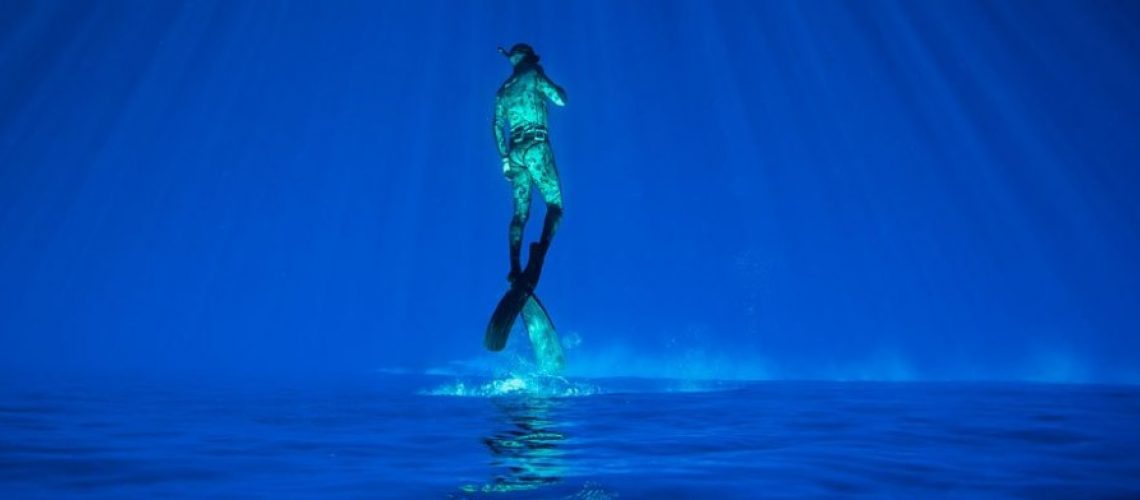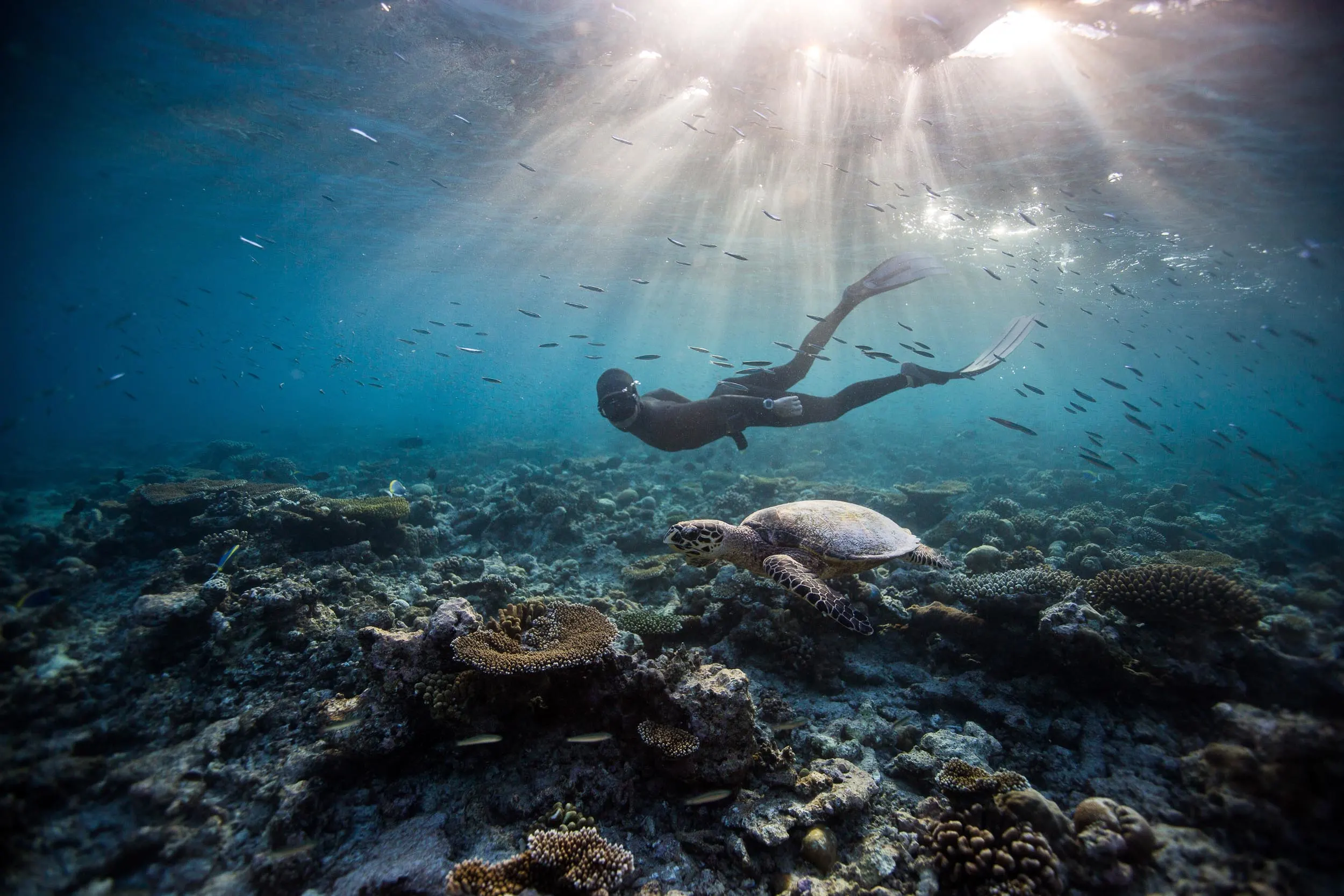Freediving – what is it
The very concept of freediving is diving to depth,
while holding his breath – appeared relatively long ago. It dates back more than one thousand years, and I myself could not say exactly when, but I know from the lessons of history that in ancient times there was no equipment for freediving, like scuba gear.
People simply held their breath, dived as deep as possible to explore the bottom of the ocean, get pearls from there, look at sunken ships, find treasures, or simply go on a sea hunt to somehow feed their families.

There are countless exciting stories associated with this sport, for example, only overweight women have always gone in search of pearls, and the higher the indicator on the scales, the better. The water at a depth is much colder than the body’s usual temperature, and only thanks to the subcutaneous fat could the fat women complete their work and return to the shore with prey in their hands.
Freediving as a sport
The sport and recreational discipline of freediving has become known to the world relatively recently: in the middle of the last century, three Italians competed with each other to see how far they could dive and hold their breath.
In addition, they actively began to take underwater photos and videotape, thus interest in freediving began to increase exponentially.
Every sport requires regularity from us, so in freediving, if you plan to devote the maximum amount of your time to it in the summer, you will have to actively prepare and develop your lungs According to statistics, each person, with active training, is able to dive to a depth of more than 30 meters.
Freediving is a very beautiful sport. In crystal clear water, a person who is not weighed down by air tanks can gracefully descend. I think the girls, at this moment, associate themselves with mermaids, and if they put monofins on their legs, it will be difficult to distinguish them from real mermaids.
To professionally dive to such a depth, while holding your breath for a few minutes (min 2-3), you need to take a special training theoretical and practical course. The visual beauty of freediving should not mislead you: diving into the depths and being underwater holding your breath is not an easy task, and without mastering the special technique, you simply risk your life and at least your health.
The most common myths
“Freedivers are like people from another planet, I definitely can’t do that.”
Freediving is based on the natural ability of the human body. Scientifically, this is called a diving reaction – it will allow absolutely anyone to hold their breath for the maximum time, while spending some time under water without feeling discomfort.
Believe me, with the right attitude and having previously prepared, it will not be stressful for your body, the main thing here is to properly deal with the psychological barrier and excitement, it will always be present.

A person who has completed a training course will be able to properly hold his breath for two minutes and at the same time completely relax. During training, the mind and body begin to progress rapidly, so holding your breath in static for four minutes in the company of freedivers is not something unique.
Respiratory gymnastics and physiological processes in the body are studied in detail, preparatory work is carried out for holding the breath, proper restorative breathing, first you train to do all this on land, then under water.
Only after you fully begin to realize what is happening with your body, how the body reacts, what new sensations appear and what they mean, you move on to the next stage of training, which takes place already in the pool. As a result, after the first few sessions, you will be amazed at your results and think that you are an amphibian.
Interesting Facts
It is surprising that in the long history of the official AIDA competition in freediving there were no stories of deaths during dives or competitions, despite this, at almost every stage, someone lost consciousness.
However, there is little information on the Internet about the death of athletes. Most often this happened due to inexperience and independent diving without certain skills.
The main principle of safe training is well-coordinated partner work – you will be taught this from the first lesson.
Professional instructors talk in detail about the scenario of the development of the situation, talk about the physiology of incidents and, without fail, teach the skills of providing partner assistance. It’s like an ABC that all future freedivers should know, who have taken a responsible approach to their training. Even if you are no longer in training, and the ocean is in front of your eyes, no matter how much you want to dive and look at another world, never dive yourself.